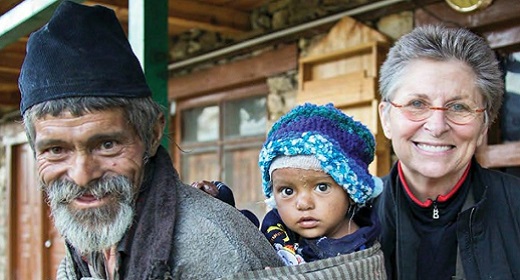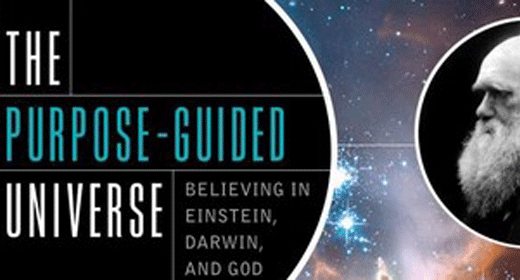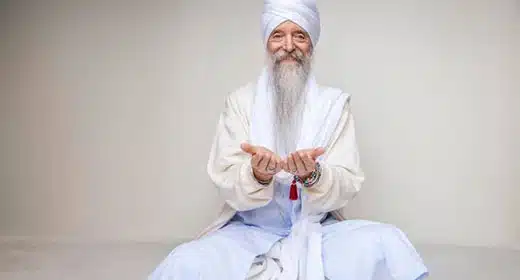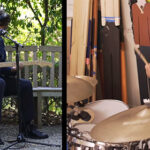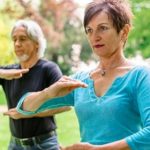by Glenn Plaskin: Anthony (Tony) Robbins: At the Los Angeles Convention Center, 5,000 fans are up on their feet, bouncing to U2’s “Beautiful Day,” palms pumping the air as their indefatigable leader appears from the wings, exhorting followers from 40 countries to Unleash the Power Within, the name of the four-day seminar.
Welcome to the world of Tony Robbins. From Rome to Hong Kong, Dubai to Sydney, Cabo San Lucas to Paris, the 53-year-old crisscrosses the globe on a nonstop mission to rouse the giant referred to in his signature book, Awaken the Giant Within.
Sure, critics have made fun of his omnipresent TV infomercials and QVC pitches, while some mental health professionals question the efficacy of rapid-fire transformation. But the king of life coaches dismisses skeptics, pointing to a record of proven results and impressive sales: Four million people have attended his seminars; 50 million have bought his books, tapes and DVDs. Everything about him is supersize—his height (six-foot-seven), his yearly income (more than $30 million), his Twitter followers (more than 2 million) and his personal-coaching fee ($1 million annually).
A self-made man who never went to college, Robbins was raised in a violent household by a volatile mother addicted to prescription drugs and alcohol. After she kicked him out of the house when he was 17, he worked as a door-to-door repairman. By the age of 24 he was a millionaire, trading in his Volkswagen for a Rolls-Royce. He’d discovered within himself the ability to “sculpt” people, creating a life-coaching industry that hadn’t previously existed.
Bill Clinton sought his advice as president. Serena Williams relied on him to avoid on-court meltdowns. Princess Diana bared her soul to him in Kensington Palace. Hugh Jackman, Leonardo DiCaprio, Anthony Hopkins, Quincy Jones, Andre Agassi, Donna Karan and Greg Norman have all turned to him.
Robbins is a father of four and devoted to his second wife, Sage. He still racks up frequent flier miles and is as driven and ambitious as ever, maintaining a nonstop seminar schedule while also working on an upcoming book titled The Money Power Principles.
Journalist Glenn Plaskin, who has interviewed Donald Trump and Calvin Klein for Playboy, met up with Robbins at his Palm Springs getaway home. He reports: “Robbins was disarmingly relaxed, drawing me outside for a view of the mountains. After pulling out his iPad and playing his interview with a 108-year-old concentration camp survivor—whom he called the ultimate optimist—-Robbins, a student of longevity, was off and running, sipping minestrone as he expounded on the human condition.”
PLAYBOY: You must have heard every criticism in the book about your public persona. When people hear the name Tony Robbins, what comes to mind?
ROBBINS: [Laughs] I’m the infomercial guy with big teeth from Shallow Hal. But fortunately for the people I’ve worked with, I’m also the guy who creates breakthroughs, who transforms lives and closes the gap between where you are and where you want to be.
PLAYBOY: You didn’t mention your height.
ROBBINS: My height affected me in an interesting way. I was five-foot-one my sophomore year of high school and became student body president. I was the short fat kid who worked his guts out and was mouthy to anybody who gave him crap. I don’t think it was height that allowed me to impose my will, but I had an incredibly intense will and a competitive spirit. That year I tried to get the head cheerleader’s attention, but the noseguard of the football team poured chocolate milk all over me. I smacked him as hard as I could and said every four-letter word I knew. Then I ran like hell. But I wasn’t very fast.
PLAYBOY: Your legs have gotten a lot longer.
ROBBINS: I grew almost 10 inches my junior year, but I didn’t discover why until I was 31 and a doctor told me I had a tumor in my brain. That was a brutal day, a moment of humbling disbelief, anger and doubt. I’d been healthy as a horse but was told I had a rare disorder called acromegaly, which caused the excessive growth spurt in my teens. At six-foot-seven, with size 16 feet, it didn’t take a brain surgeon to tell me that. He recommended surgery, but I never had it. And I’ve never had a problem. If I’d listened, they would have cut out a piece of my brain.
PLAYBOY: Studies have found that taller people are perceived as more intelligent and powerful, and they make more money. Did height give you an edge?
ROBBINS: It was more a hunger to succeed, to break through and make a difference. It’s not conditions, it’s decisions that shape your life. Destiny is choices. You can find too many people who are small in stature but not in character—like Mother Teresa or Mahatma Gandhi—to believe that height matters. Motive matters. The ultimate thing that separates people is finding a mission greater than themselves. But most people major in minor things. They know more about Lindsay Lohan and the Kardashians than about their emotional lives. They start out with dreams but get slapped down by disappointment, which takes a bite out of their confidence. So they travel through life with less than they deserve and come up with a story about why.
PLAYBOY: You mean “if only” rationales for lesser results?
ROBBINS: Yes. Most of us are looking for something outside ourselves that we can’t control to blame for where we are, rather than finding a way to control the inside world and maximize our greatest strengths. People who focus on what they can’t control are usually depressed, frustrated, angry, overwhelmed and lost. Sure, there’s no way to look at the world and say it’s fair, even or just. Some people have advantages.
PLAYBOY: Does having advantages always help?
ROBBINS: No. You give some people everything and they spend their lives going through rehab. Lindsay Lohan is a great example. Then you look at Oprah. Abused as a child, yet with an unbelievable level of passion she became the woman she is today.
PLAYBOY: So what makes the difference?
ROBBINS: I’ve been obsessed to know that my entire life. The difference is psychological strength, emotional fitness. It’s the capacity to face the worst setbacks and find something inside to push through and triumph no matter the circumstance. I interviewed Alice Herz-Sommer, the world’s oldest living Holocaust survivor. Her husband and parents were killed in the camps. She wasn’t. Why? She was a great pianist, so the Nazis used her to perform in propaganda films. If she had refused, they would have executed her young son and then her. You won’t meet a happier person.
PLAYBOY: Did she share her secret?
ROBBINS: Yes. She’d focus on a memory from her previous life that would get her laughing. And she got outside of herself by lifting people up with music. Compare her story to someone saying “I lost my job on Wall Street and now it’s over.” Give me a break. You’re not in Somalia, right? You haven’t lost your abilities. You can find a way to retool.
PLAYBOY: What’s the real problem?
ROBBINS: We’re emotionally unfit. We expect things to be given to us that other generations had to earn. We think we’re supposed to get homes with no money down and be supported by the government if we’re unemployed.
PLAYBOY: What do you tell people who lose their jobs?
ROBBINS: First, feed and strengthen your mind with something that inspires you. If you don’t, disaster and fear is where your brain will go. Second, feed and strengthen your body. Fear is physical. When you lift weights or go for a sprint, that energy flows back into your body and restores you to certainty. Third, find a role model, someone who has turned their life around. Fourth, take massive action and keep changing your approach. Fifth, find somebody who is 10 times worse off and help them. It reminds you that you have something to give and to be grateful.
PLAYBOY: Some people think you have all the answers. Do you?
ROBBINS: I have no delusions that I’m the only source of improving people’s lives or that I’m even the right source. My style is intense, and it’s not going to be right for everybody.
PLAYBOY: Some mental health professionals might say you attempt to fix people in a weekend, when it takes months or years to properly delve into a psyche.
ROBBINS: First of all, I don’t fix anybody, because I don’t think anybody’s broken. I think what people have are patterns, and those can be changed. People quickly understand that what’s controlling their thoughts and emotions are their values and rules, and they learn how to shift those.
PLAYBOY: Don’t some who are physiologically depressed require medication?
ROBBINS: Without a doubt. But biochemistry can be instantly changed without drugs, which may sound like bullshit hyperbole. But I’ve been demonstrating for decades that you can alter anyone’s state by a radical change in physiology—lifting weights, sprinting, abruptly changing breathing, all of it shifting your mind-set in a heartbeat. But we take on these identities of diseases and feel we’re doomed. Are there people for whom only medication can make a difference? Yes, but I’d say it’s rare, a small percentage. And 75 percent of people who take antidepressants are still depressed.
PLAYBOY: Yet 30 million Americans are taking them, and countless doctors would disagree with you.
ROBBINS: We’ve been sold a bill of goods that says you shouldn’t have pain and that if you do you should end it with a pill, a message reinforced by ridiculous commercials. You hear beautiful music and see somebody floating through a meadow, and at the end you find out that the drug may blow up your brain, but try it anyway, right? A pill can’t solve the problem. All it can do is numb you and lose the pain that would otherwise drive you to finally change something.
PLAYBOY: Ever taken an antidepressant?
ROBBINS: Never. I’m not saying it isn’t useful for people; it’s just not my path. That’s not because I’m a superman. I grew up in a family where both my parents were alcoholics and users of prescription drugs. At the age of 11 I’d go to the pharmacy and convince the pharmacist that my mom had lost her Valium, and he’d refill it. So I saw the severe effects of drugs.
PLAYBOY: Have you ever seen a therapist?
ROBBINS: No.
PLAYBOY: Are you against it?
ROBBINS: No, I actually train therapists through my Center for Strategic Intervention, using films of my interventions. But I believe therapy can be done more rapidly. I’m into your finding the source of what’s making you think and feel the way you do and shifting it quickly.
PLAYBOY: How do you feel when you’re onstage? Does the adrenaline start to flow?
ROBBINS: It’s not just adrenaline; oxytocin is flowing too. I love that audience. I’m out there feeling them rather than being inside my head. I don’t use teleprompters or notes. I’d want to kill myself if I did the same regurgitated stuff every time. I’m always loading my brain with new ways of looking at something. To me, words are like stickpins. I can throw a word at you and it will bounce right off your body. But if I take that little stickpin and wire it to the back of an iron bar called human emotion, I can put that thing right through your heart.
PLAYBOY: During those hours, are you wearing down people’s defenses as a means of creating a breakthrough?
ROBBINS: That’s bullshit. In a world where people won’t stay in their seats to watch a three-hour movie that cost $300 million, why do they stay put for 50 hours in my seminars? They can vote with their feet and get a full refund. Nobody’s holding them there. When Oprah came to Unleash the Power Within, her people said she’d stay for two hours max, but she stayed until one A.M.
PLAYBOY: Did she do the fire walk?
ROBBINS: She did.
PLAYBOY: What’s the point of walking across coals heated to 1,200 degrees?
ROBBINS: To have a breakthrough, you want to give people the experience of doing something they thought impossible. I use fire walking as a metaphor, a test of someone’s strength and courage.
PLAYBOY: About a year ago, at one of your seminars in San Jose, Fox News reported a “hot coal catastrophe,” saying more than two dozen participants out of 6,000 were injured and hospitalized with second- or third-degree burns during the fire walk.
ROBBINS: Those reports were absurd, and they have been proven to be completely false. A handful of people had a mild degree of redness, and we gave them immediate treatment. Nobody was hospitalized. And there wasn’t one third-degree burn. Fox later issued a rare on-air retraction.
PLAYBOY: How safe can a fire walk be?
ROBBINS: In the past 35 years, more than 2 million people from 100 countries have done the fire walk successfully. It’s like skydiving—if you know what you’re doing and prepare for it, it’s an exhilarating and unforgettable experience.
PLAYBOY: In Oprah’s case, being a tough, sophisticated woman, what would she be afraid of?
ROBBINS: Everybody has fear. I was surprised by her level of vulnerability. Right now she’s in the spotlight, working to build a TV network with positive and uplifting content in a world where humiliation and voting people off the island are what sell. That’s not easy, even for Oprah. What I learned from her is grace under pressure.
PLAYBOY: What did she learn about you?
ROBBINS: Before coming to the seminar Oprah thought I was a salesman, an infomercial guy, nonspiritual in some way. But now she’s been introducing me as her spiritual warrior. We laughed about it, and I teased her a bit.
PLAYBOY: When you first met her, years ago, how was the rapport?
ROBBINS: Well, I’d never been on her show. It’s ironic. I’d been on every show dozens of times—God only knows how many times on Today—but Oprah never invited me.
PLAYBOY: You’ve often said “You’ve got to discipline your disappointments.”
ROBBINS: Yes. When I say I rarely fail in life, that’s bullshit. I fail all the time, but I don’t view it as failure. Unless you can discipline your disappointment, it overwhelms you. It puts you in a mental and emotional state that drains your energy. You lose your will and your capacity to be resilient. The one common denominator of all successful people is their hunger to push through their fears.
PLAYBOY: Is fear the biggest problem people have?
ROBBINS: No question. Our deepest fear is that we’re not enough. I don’t care if it’s the president, a prisoner, an Olympic athlete or a parent. We feel we’re not competent enough—or smart, strong, athletic, humorous or beautiful enough. And if we’re not, our second fear is that we won’t be loved.
PLAYBOY: But what about fear of illness, death, our children’s welfare, unemployment, living in a post-9/11 world?
ROBBINS: Do people feel afraid of many things? No question. Those fears are real, but all roads lead to Rome, down to the twin fears. It’s okay to feel afraid, and you can use that emotion to propel yourself forward. I don’t tell people, “Go to your garden and chant ‘There are no weeds’ and do a bunch of affirmations.” I’m not Mr. Positive Thinking. I never have been. I’m a strategist, not a motivator. I’m obsessed with finding strategies that create real results in the shortest period of time.
PLAYBOY: You often say change happens in a second. Do you mean that literally?
ROBBINS: People say it takes 10 years to change your life. It’s bullshit. It takes a moment, a second, yes. But it may take you 10 years to get to the point of finally saying, “Enough.”
PLAYBOY: What do most people do when they have a problem?
ROBBINS: They feed their fear because they are deathly afraid of failing, of not being enough. They will say, “I can’t lose weight because I’m big-boned.” I say, “No, you’re freakin’ fat!” You don’t like your body, your job, your relationship? Change it. It’s obvious. But most people won’t do that. It’s too scary.
PLAYBOY: What fear keeps you up at night?
ROBBINS: I’m not kept up right now, but I’ve certainly had those moments. One fear was that I would die young. I thought, Why me? That fear helped me because it gave me a sense of urgency to have an impact.
PLAYBOY: But if you had to name a fear today, what would it be?
ROBBINS: I love my wife, Sage, at a level that’s just ridiculous, so when I think of all the things in my life that give me joy—besides my mission—it’s my wife and kids. When Sage was born, her vestibular system, which controls balance and eye movement, was damaged, and the result was severe motion sickness. With me traveling constantly by plane, she was throwing up on every flight, losing weight, wilting away to nothing. I thought I was going to lose her.
PLAYBOY: How did you cope?
ROBBINS: I was punishing myself. Here I am, Mr. Solution, right? But not being able to turn things around for her was torturous. For nine years we went to doctors, nutritionists, natural healers, even experts at NASA and the U.S. Navy’s Top Gun school—nothing worked. And at one point she developed a tumor in her lymph gland and I thought she was going to die. She’s fine now, but her constitution isn’t as strong as mine. I’m always aware of that, so that’s the one fear out there for me. But I don’t obsess about it, and I don’t live in that fear. And the good news is we finally solved the problem.
PLAYBOY: How?
ROBBINS: It’s a crazy story. It was a natural hands-on healer who did it, a monk at Oneness University, on the eastern coast of South India. It sounds like complete bullshit, but after Sage learned a form of self-meditation that calms the parietal lobe of the brain, she was able to tolerate motion. We took the most turbulent helicopter flight I’d ever had, and she sat there smiling. I’m crying because it had taken years, but here’s the grace of this woman who is finally healthy.
PLAYBOY: How has this changed you?
ROBBINS: It got me to say, “Look, maybe this is a gift from God. I think I’m indestructible, but no one is. Maybe this woman was sent into my life because I would never have slowed down for me, but I’ll do it for her.” So I cut the number of events by half.
PLAYBOY: Aside from public seminars, you coach private clients too. Is it true you charge up to $1 million a year?
ROBBINS: Yes. From one client I’ve had for 20 years—one of the top financial traders in the world—I get a base fee plus a piece of the upside. He e-mails me each day, and I monitor both his financial performance and his psychology and emotion. And I go see him four times a year for a couple of hours each time.
PLAYBOY: You also get emergency calls from celebrities, right?
ROBBINS: It could be anyone from Billie Joe Armstrong of Green Day to President Clinton wanting just another point of view, or a financial trader who just lost $30 million, or Hugh Jackman wanting to take his acting to the next level, or Serena Williams after she’s been injured. I have to deliver right there and right then.
PLAYBOY: What was the coaching about for Serena?
ROBBINS: A few years ago, after surgery, she was in bad shape. She’d lost her drive and hunger and, quite frankly, was afraid to fail, having stacked up so many painful experiences. I had to dig inside and find the part of her that was unstoppable. She reclaimed her rhythm and energy and went on to the U.S. Open, improving every aspect of her game.
PLAYBOY: Among those you’ve met or coached, give us some snapshot impressions. For example, Mother Teresa.
ROBBINS: I asked her, “What really excites you, lights you up?” Kind of a bizarre question, right? She giggled, looked directly at me and said, “Seeing a person die with a smile on their face.” I was stunned. But to her, seeing the end of suffering is what she lived for.
PLAYBOY: Nelson Mandela.
ROBBINS: I made the mistake of asking, “Sir, how did you survive all those years in prison?” He gave me a stern look: “I didn’t survive, I prepared.” He believed he’d either die in jail and become a martyr, or live—in which case he needed to lead. His strength, that sense of authority and certainty, was mind-boggling.
PLAYBOY: Who surprised you the most?
ROBBINS: Mike Tyson. I found out he’s incredibly well-read—religious books and a wide range of literature. He was describing how he’d brought Aryan and African gangs in prison together, preventing a riot. And in the middle of telling me all this stuff about love, he snaps, “But sometimes I think if there was a button you could push and kill everybody in the world, I’d just do it!”
PLAYBOY: Princess Diana.
ROBBINS: I’ll never forget the sad expression on her face when she said she felt like a lonely sparrow in a gilded cage, like she had no choices, that she was trapped in a system where she couldn’t be herself. My primary goal was to show her that there were choices. And she made the giant choice to end her marriage. One of her biggest concerns was that her son would not have the chance to be king. She believed that both sons were born to serve, that her own life was about service.
PLAYBOY: Bill Clinton.
ROBBINS: He called asking for assistance during the time he was losing power as the Republicans had taken over both houses of Congress. “Mr. President,” I told him, “I have to tell you in advance—I’m not a fan.”
PLAYBOY: Why weren’t you?
ROBBINS: I felt he had campaigned on the economy but was focusing on everything but that. The incongruity of it bugged me. But as I got to spend time with him, I saw an impassioned man with a deep desire to end suffering. I remember being with him in Aspen during the Monica Lewinsky period. Going down the side of the mountain, he said, “You know, I’d run again if I could.” I teased him, “I’d get out while I could!” Another night, at Camp David, he said, “Come walk with me.” It was Christmastime, with deer passing us. Surreal, you know? We’re having this conversation about life and the country. And I’m thinking, My God, I’m here with the president and have a chance to make a little bit of a difference.
PLAYBOY: During the last election, you had what was called “a very intense meeting” with President Obama. What happened?
ROBBINS: I was invited to a private meeting with 18 business leaders, most of them Silicon Valley billionaires. I started off saying, “Mr. President, I voted for you before, but how will things be different four years from now? You haven’t passed a budget. Even Democrats aren’t supporting you much. And why didn’t you support Simpson-Bowles?” The audience was a bit shocked.
PLAYBOY: The president’s reaction?
ROBBINS: He said, “I came up with a much better program than Simpson-Bowles.” I answered, “Mr. President, with all due respect, your solution may be a better one, but no one is supporting it.”
“Well, in a matter of time, I can get this done,” he said. “The first thing I’m going to do is let the Bush tax cuts expire on the wealthy, and that will make a big difference in the deficit.” I told him, “A nonpartisan committee has estimated the total amount of money saved by letting those cuts expire will add up to only $40 billion a year. It costs $10 billion a day to run this country, so that money will last only four days.” At this point, someone came over and touched my arm and said, “I think that’s enough.” To the president’s credit, he said, “No, Tony is generating some creative tension here.” At the end, he looked at me: “Tony, you made me think today. Talk to my chief of staff. Let’s set a time for you to come to the White House.”
PLAYBOY: You’ve come a long way from South Central L.A., where you grew up. What was your household like?
ROBBINS: My mother was a very dominant person, a little wild—she had four husbands—and a little crazy. She never went out of the house. She trapped herself in her bedroom, covering the windows with tinfoil to block out all the light.
PLAYBOY: Was she agoraphobic?
ROBBINS: Not agoraphobic. As I said, she was an alcoholic and addicted to prescription drugs. As the oldest, I was her support system. I took care of my younger brother and sister, did all the shopping, made the meals, fixed the garbage disposal while she stayed in her room.
PLAYBOY: What was she doing?
ROBBINS: Drinking.
PLAYBOY: Was she affectionate?
ROBBINS: Extremely. She loved her kids immensely. But as time passed, she became more violent and would go into extreme states where she’d be out of control. It wasn’t just the physical hitting, belts and coat hangers. She’d squeeze liquid soap down my throat until I threw up.
PLAYBOY: What effect did the violence have on you?
ROBBINS: It made me hate suffering. I’ve always hated it. And I think suffering was a great gift in my life.
PLAYBOY: But you must have felt angry about it.
ROBBINS: I used to live in anger and used my rage as energy. I converted it into drive, fortunately, because just being angry wouldn’t have changed anything. When I was 17 I got kicked out of my house on Christmas Eve. My mom chased me out with a knife. I knew she’d never hurt me, but I never went back.
PLAYBOY: How did you survive?
ROBBINS: I could fix anything, so I supported myself by knocking on doors, doing repairs for people. And I made $40 a week as a part-time janitor while finishing high school.
PLAYBOY: Did you give up on the idea of going to college?
ROBBINS: Yes. I wanted to be a sportscaster but had to figure out how to support myself. Around then, a family friend told me he’d gone to a seminar that changed his life. I thought, What the hell’s a seminar? Then I heard Jim Rohn, a personal development speaker, who shared a philosophy about how to grow and make your life better. I was on fire. I wrote him a letter and wound up working for him, making good money and reading everything I could about human psychology. I got exposed to neuro-linguistic programming, Gestalt and Ericksonian hypnosis.
PLAYBOY: Then, at the age of 21, you started doing interventions, right?
ROBBINS: Yes, I was on a radio interview and said, “I don’t care what the problem is. If you have uncontrollable phobias, come see me at the Holiday Inn, and I’ll handle it in one hour, because I’m the one-stop therapist!” I was a cocky little bastard. I was driven, hungry, and I had to sell confidence.
PLAYBOY: Didn’t you feel like a fake?
ROBBINS: No, I didn’t, because I produced results. I started charging $1,000 an hour, which sounds insane. “But you pay me nothing if it doesn’t work and if it doesn’t last.” I treated people who were severely depressed, who wanted to quit smoking. And the results I got fed me. That’s how success happens in life. You get results.
PLAYBOY: During those first years of success, did you go a little crazy with cars, sex and women?
ROBBINS: I bought a Rolls Corniche convertible when I was 23 and took my father over to our old house and did the tour. He lit up like a Christmas tree. Then I bought a big house I couldn’t afford, but the next year I made a million dollars and paid it off.
PLAYBOY: And the women?
ROBBINS: Well, I wasn’t a good–looking guy. Some people probably still think that’s true, but I certainly had a full experience with women for two or three years. I would have a dozen relationships simultaneously. And I’d be honest with all of them. But all that stopped quickly when I got married at 24 to a woman 11 years my senior. She had three children and had been married twice before. Imagine being my age and you’ve instantly got a 17-year-old son, an 11-year-old daughter and a five-year-old son, with another son of my own from a former relationship on the way.
PLAYBOY: What drew you to an older woman with children?
ROBBINS: I wasn’t looking for children. I was drawn to Becky because women my age didn’t seem to have a vision for their lives. I met her at one of my seminars. We developed a relationship, and she became my personal assistant. It was one of those small commitments that enlarged. I had a love for her—but I didn’t want to get married, and every time she talked about it I’d blow it off.
PLAYBOY: But you went ahead.
ROBBINS: She would have been so unhappy if I hadn’t. I was such a pleaser; I wanted to make her happy. But the -beauty that came out of it was my ending up the father of four. I’m proud of them all, and having them at the age of 24 made me stretch in ways you can’t imagine. One of my sons was addicted to drugs and alcohol, so he became one of my first clients. We got him through it, but traveling around the world while trying to be an effective father was challenging. All the things I treasured—including a sense of passion and intimacy with my wife—were interrupted continuously.
PLAYBOY: And your marriage didn’t survive.
ROBBINS: My wife and I were very different. She’s a woman who highly valued certainty and stability, while I was a wild, insane man driven in the extreme, craving uncertainty and adventure. As time passed, we were no longer aligned.
PLAYBOY: Did it end acrimoniously?
ROBBINS: It was painful. I wanted to end it, but my spouse didn’t. I kept telling myself, I have my mission, I love my kids, and she’s a great woman. Why can’t that be enough? But at 39, I didn’t want to spend 10 more years like that, and it became acrimonious. The divorce process took three years because we had a certain amount of assets to go through.
PLAYBOY: At the time you met Sage, you were still married, and so was she. How tricky was that?
ROBBINS: It wasn’t tricky at all because I’d already ended my relationship. And she’d left her relationship a year and a half before me, so there was no conflict.
PLAYBOY: How do you know when to keep working at a marriage and when it’s time to let it go?
ROBBINS: Well, I was stubborn. I stayed 14 years. I wasn’t a slouch. But you have to see how your natures are aligned. Sage and I are a natural match. We have the same values and beliefs. She has as much intensity as I have, and yet she has a calming effect because she’s so playful. I was a militant guy. I was a vegan and hadn’t had ice cream or chocolate in 20 years. Then Sage ordered a hot fudge sundae and I was like, “What the hell are you doing?” She goes, “Enjoying life, you bastard.” She loosened me up. She’s my karma for being able to help people. That may sound exaggerated coming from a guy who didn’t think one woman could fulfill him.
PLAYBOY: Why didn’t you think one woman could?
ROBBINS: After my divorce, before dating Sage, I was at a stage where I thought that would be totally impossible. I was a single, successful man. I’d taken my company public, and I was pretty intelligent—and humble, as you can clearly tell. [laughs] When I started dating again, I’d tell women, “I don’t want to be married. I’ve been there.” But I was crazy enough to bring women to my resort in Fiji for five straight days instead of going out and having lunch. I was so stupid. What most guys think would be their ultimate fantasy was the worst experience of my life. I was miserable because these women wanted to marry me after a week—my idea of hell on earth.
PLAYBOY: And did your women fans express interest in you?
ROBBINS: [Laughs] More than that. They’d send me their panties and show up at events in limousines to get through security, or turn up at my house to convince me they had an offer I couldn’t refuse.
PLAYBOY: You must have been tempted.
ROBBINS: I was beyond tempted at times. There was no drought, for sure. I was like a kid in a candy store. Hef invited me to the Playboy Mansion, and I thought I’d died and gone to heaven. Women came bouncing on over to me saying, “Oh my God, Tony Robbins, you changed my life!” I had the greatest times.
PLAYBOY: Literally.
ROBBINS: Quite literally. Having all these different women I could be with was the ultimate fantasy. One night some of them wanted to go home with me, simultaneously, for a nice, interesting group experience, which was something I thought I’d always wanted. Instead, I dropped them all off and didn’t take any of them with me.
PLAYBOY: Because you’d met Sage?
ROBBINS: Yes, she was the woman who had become my best friend, though for the first six months we were just buddies. I was always telling her everything about the women I was dating, and we’d laugh together and have such a great time. She helped me get all those women off the island in Fiji, and I ended up making the choice to be with her. That was the ultimate test.
PLAYBOY: So you believe in monogamy?
ROBBINS: I do for me, now, but I don’t know if monogamy is right for everybody. I wouldn’t have believed it was possible before. When I got divorced, I didn’t believe any man could stay in a long-term relationship with one person and be fulfilled. But I believe in it 100 percent today.
PLAYBOY: How, as a married man, do you handle your sexual attractions?
ROBBINS: When I met Steven Tyler, I asked him what kept him going in the band for 35 years, and he laughed: “Front-row blondes.” Women up front who expose themselves, forget to wear their panties, just crazy shit. In my seminars I could be ugly as hell, but when you have a position of leadership, women will throw themselves at you. But I knew the difference between what the animal and what my soul would be fed by. I look at what I have in my life, and there’s zero comparison.
PLAYBOY: It’s 14 years later. Is the passion alive, or has it gotten boring?
ROBBINS: It’s the furthest thing from boring, and I’m not saying this to brag, because I was a total failure in this aspect for 14 years of my previous marriage. I expected it should just happen. Or if it didn’t, then it wasn’t there. I was just stupid. Now I make it my focus. We both know how to trigger and arouse each other, which is a useful thing, without going into any detail.
PLAYBOY: What do you mean by triggers?
ROBBINS: It might be a body part of your partner’s, something they say, something passionate or playful. Once you’re aroused, desire has a chance to step in, which leads to the sensuality. That allows you to take that desire and fire on it.
PLAYBOY: Do you have sex more than once a month?
ROBBINS: [Laughs] Yeah, that would be a good description. A lot more than that, yes.
PLAYBOY: After 14 years?
ROBBINS: Ask my wife. See what she tells you.
PLAYBOY: So you’re a happy guy.
ROBBINS: The happiest I have ever been. Sage is one of the greatest gifts God’s given me. My whole life is driven by love. It always has been. It’s never been driven by material things—which are just benefits of doing something I loved. When people say money doesn’t matter, it sure as hell does when you’re able to show your mother a beach house and then hand her the keys to it. That was one of the happiest moments of my life.
PLAYBOY: What do the material possessions mean to you? You travel by private plane, own a 525-acre resort in Fiji, plus four other homes including your main residence, a $25 million estate in Palm Beach.
ROBBINS: It would be stupid not to say I’m very grateful for them. But if it all disappeared tomorrow, I’d be fine. At the core, it’s relationships that make people happy. Accomplishments won’t do it. Who you’re connected to is everything. I also have something else, which is a deep sense of meaning.
PLAYBOY: Do you mean your mission?
ROBBINS: Yes. What drives me is seeing people make breakthroughs that reconnect them with real passion.
PLAYBOY: When you witness a transformation, what happens for you personally?
ROBBINS: It’s like something steps into me, and it’s only later that I try to figure out how it happened. I know a huge part of it is grace. I never forget that. I often go backstage and get tearful. To think I could start out as a janitor and wind up making a real difference in people’s lives. [chokes up] I mean, you can see the tears, and I can feel it in my body right now. I know I’m not the answer for everything and everyone, but in my soul I was made to be a person who could help. I’d love to have as much time as possible.
PLAYBOY: But if you died tomorrow?
ROBBINS: I’ve had a blessed life. That’s not to say I didn’t have extreme stress and pain. People I loved didn’t love me. I’ve been told “You have a tumor.” I’ve buried two fathers and a mother. I’ve been in businesses that were on the edge of bankruptcy. And thank God I didn’t give up. Remember, I’m the kid who lived in a house with tinfoil on the windows, shutting out the light. But my passion today is turning that light on.



